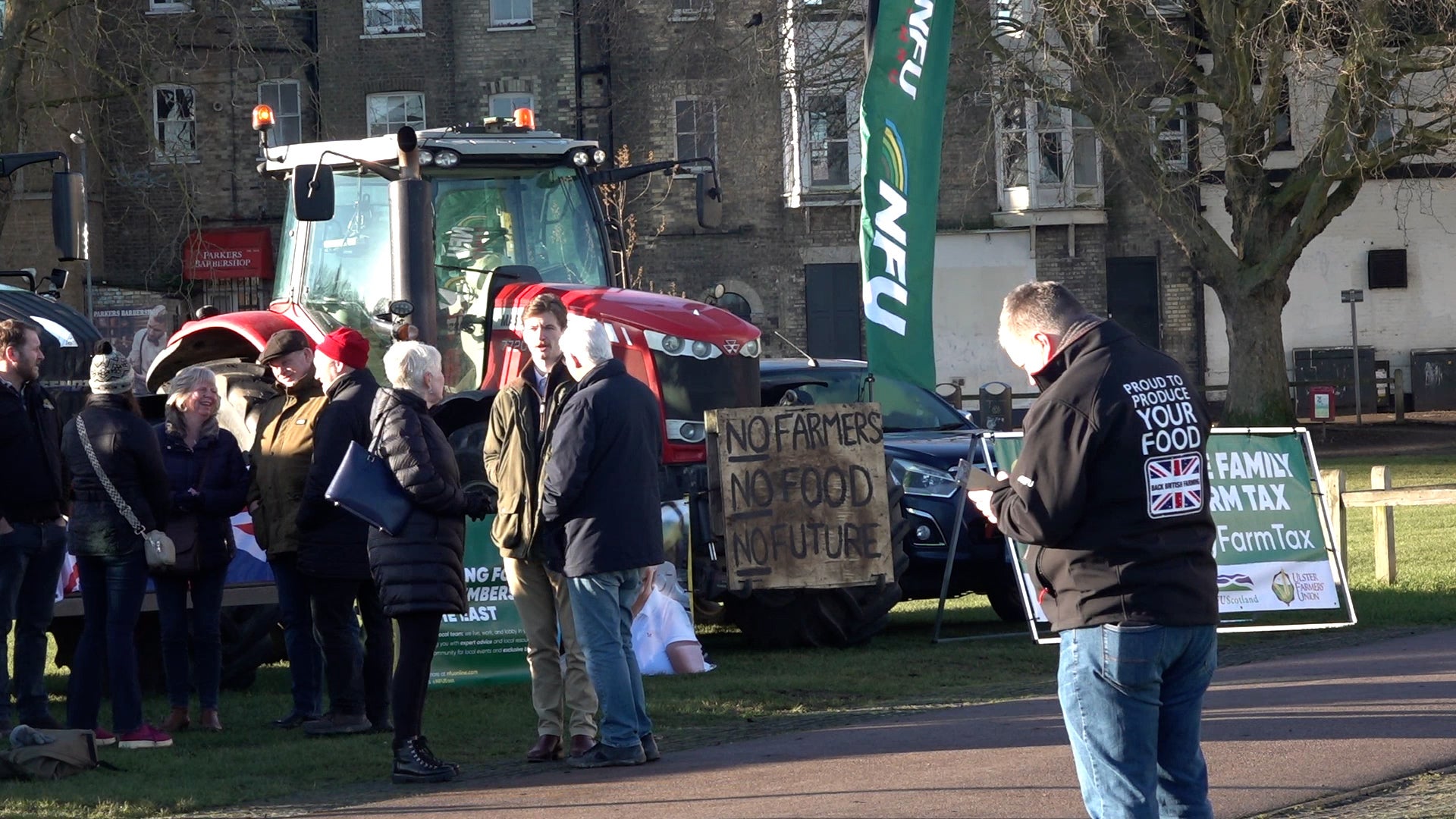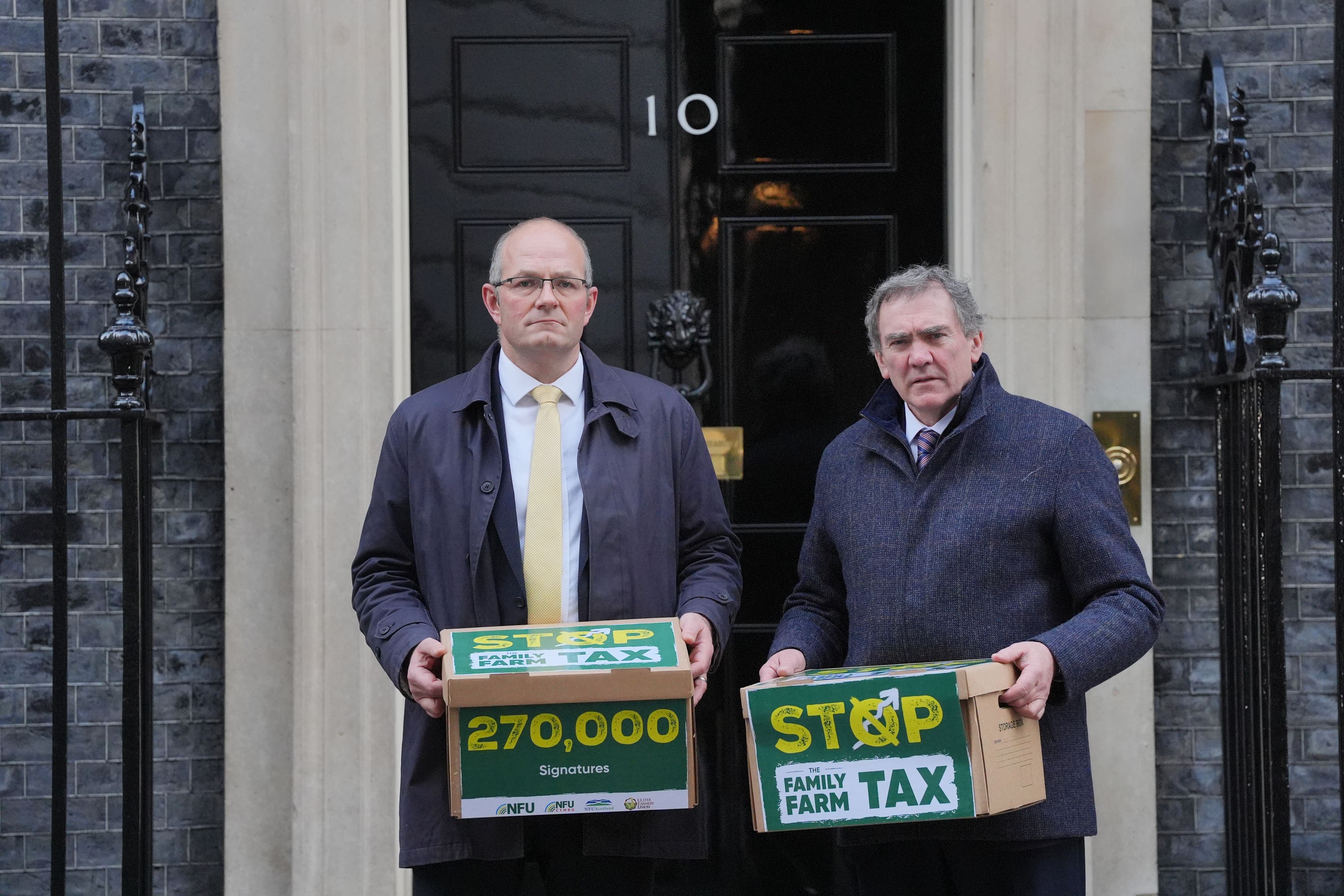Farmers have warned Labour’s controversial tractor tax could “decimate” the country’s agricultural sector as they stage fresh protests across the UK.
Rachel Hallos, a livestock farmer from the South Pennines and the vice president of the National Farmers’ Union (NFU), said the decision to extend inheritance tax to cover agricultural properties is something members are “really worried” about.
Farmers are gathering at protests across the UK on Saturday as they step up their campaign against the tax raid, which means farms valued at £1m or more would be liable for 20 per cent inheritance tax.
The NFU is staging a series of events as part of a so-called National Day of Unity, with farmers bringing food, tractors and livestock to town centres across England, Wales, Scotland and Northern Ireland.

The events take place after a petition signed by more than 270,000 members of the public was handed to 10 Downing Street on Friday by NFU president Tom Bradshaw and NFU Cymru president Aled Jones, urging the government to ditch what they described as the “devastating family farm tax”.
Ms Hallos said she hoped Saturday’s protests would “raise awareness” of the impact of the planned reforms to inheritance tax for farming businesses, and push the government to review its decision.
Speaking on her way to an event in Chester, Cheshire, she said: “The inheritance tax changes from the Budget will ultimately decimate what we’ve currently got in this country, and we’re really worried about it.
“Today is about telling people why we are so concerned, trying to explain how complicated the food supply chain is, because it really is, and that farmers are at the beginning of that food supply chain.”
She added: “We genuinely don’t believe that the government understands the complexity of what it is that happens in the countryside and how entwined all those rural businesses are. They all rely on each other.
“And the fact that the entire industry has come together with such strength and such clarity, and for the government to disregard that and not want to sit at the table and talk about this is quite remarkable.
“Food and environment just don’t seem to be important to this government.”

The day of action across Britain is organised by the NFU and other farming unions (PA Wire)
In a separate blow, a new report by the Office for Budget Responsibility (OBR) warned the policy may raise less than the Treasury hopes, with the £500m-a year-revenue forecast given a high uncertainty rating and likely to fall after seven years as families use tax planning to avoid the charge.
On Thursday, ministers rejected calls from supermarket giants including Tesco to halt their controversial tractor tax plan.
In a highly unusual move, some of the UK’s largest retailers backed farmers in their fight against Rachel Reeves’ inheritance tax raid, warning the “UK’s future food security is at stake”.
But Treasury minister James Murray told MPs ministers would not give in to calls to pause and look again. He said the government was “committed to delivering the reforms announced at the Budget”, adding that it was a “fair approach” that would help to fix “the public services we all rely on”.
The Treasury claims that with tax allowances, in reality only farms worth more than £3m would be affected – just 28 per cent of family farms. But official Defra figures appear to suggest as many as 66 per cent could be hit.

National Farmers’ Union president Tom Bradshaw, left, and NFU Cymru president Aled Jones handing in a petition at No 10 (PA Wire)
Saturday’s events, taking place in locations including Cambridge, Warwick and Selby in North Yorkshire, are about boosting visibility for their campaign, a spokesperson for the NFU said.
“It’s about going out to the public in the town centres and thanking them for their support, encouraging them to keep supporting farming,” they added. “The visibility is about a reminder that the problem is still there.”
A government spokesperson said: “Our commitment to farmers remains steadfast. This government will invest £5bn into farming over the next two years, the largest budget for sustainable food production in our country’s history.
“We are going further with reforms to boost profits for farmers by backing British produce and reforming planning rules on farms to support food production.
“Our reform to agricultural and business property relief will mean estates will pay a reduced effective inheritance tax rate of 20 per cent, rather than the standard 40 per cent, and payments can be spread over 10 years, interest-free.
“This is a fair and balanced approach, which fixes the public services we all rely on, affecting around 500 estates a year.”



